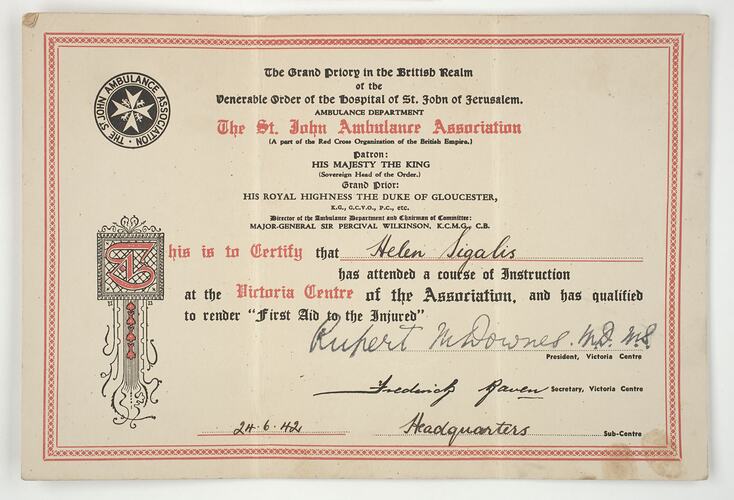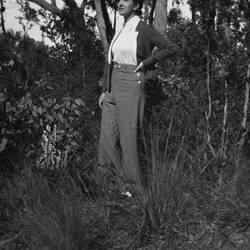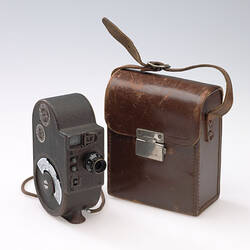Summary
St John's Ambulance, First Aid Certificate awarded to Lili Sigalas on 24 June 1942. Lili Sigalas (nee Vrahamis), born in 1904, migrated to Australia in 1922 to marry Letho Sigalas. The couple were married at the Greek Orthodox Church on Victoria Parade, Melbourne in 1923. They moved in a very sociable set, composed of their own young Greek cousins. They had cars, sophistication and some affluence.
Lili travelled abroad frequently, both with her family and with friends. She was active in the Melbourne Greek community and was a member of the International Club and the Greek Red Cross. Letho passed away in 1964 and from 1966 onwards Lili divided her time between Melbourne and Greece.
Physical Description
Certificate with red and black printed text.
Significance
The Sigalas family's immigration story is a rich narrative which relates to a number of themes in the history of social and immigration Melbourne. The curtain and collar represent the precious items brought by immigrants to Australia - in this case symbolising Lili's connections to Istanbul and the family left behind. The wedding dress is an evocative symbol of a key immigration motivation for young women - being brought out to Australia to marry men from similar cultural backgrounds, islands and villages. The 'flapper' dress represents the more affluent social life of some people in Melbourne during the 1920s, the kinds of functions people attended as well as a taste for French couture which could be obtained in select Melbourne stores. The documents represent both Lili's life before immigrating and after settlement, and complement the other objects. Copies of photographs will provide a critical visual context for the artefacts and the narrative.
The Sigalas family story signifies migration as a continuous experience for some people: of shifting from country to country until finding the right spot to settle (as in Iakovos' case); of the strong ties to homelands which draws people back again and again (where finances permit as it did with the Sigalas'); of chain migration; of finding brides in home countries in order to establish families in the new. While the objects do not directly pursue these themes, they can provide the point from which these complex migration themes can be explored.
Our immigration collections are not strongly represented in the inter wars period. Furthermore, the family's connection with the establishment of important café's in Melbourne such as the Anglo American (which became the Legend café) expand our curatorial interests in the development of Melbourne's café society.
More Information
-
Collecting Areas
-
Acquisition Information
Donation from Babette Sigalas, Jul 2003
-
Awarded To
Mrs Lili Sigalas, Melbourne, Victoria, Australia, 24 Jun 1942
-
Awarded By
-
Classification
-
Category
-
Discipline
-
Type of item
-
Dimensions
232 mm (Width), 158 mm (Height)
-
Keywords
Certificates, First Aid, Greek Communities, Greek Immigration, Immigration, Training Courses


